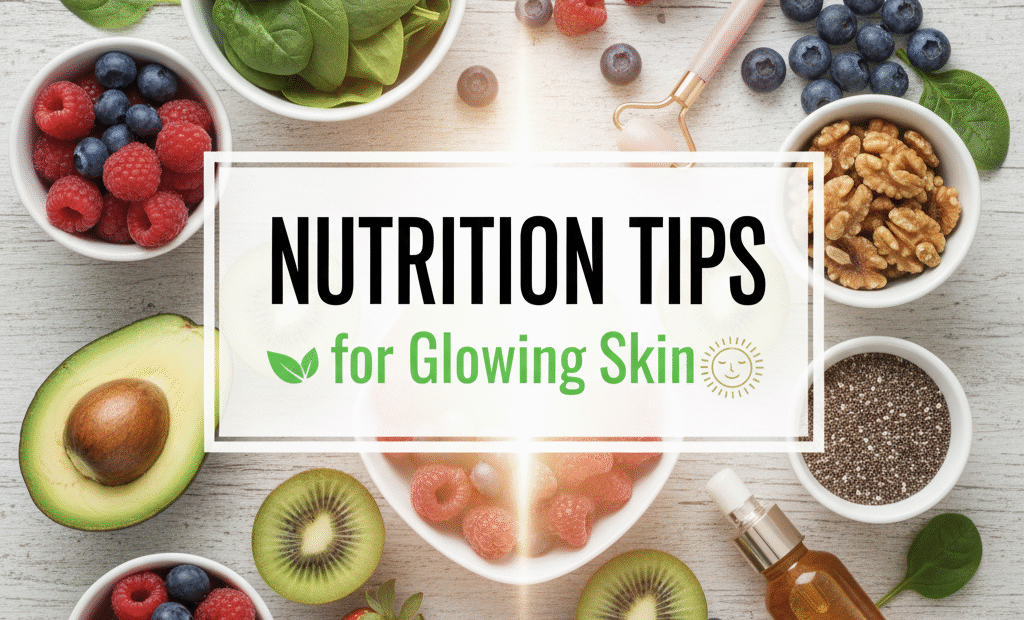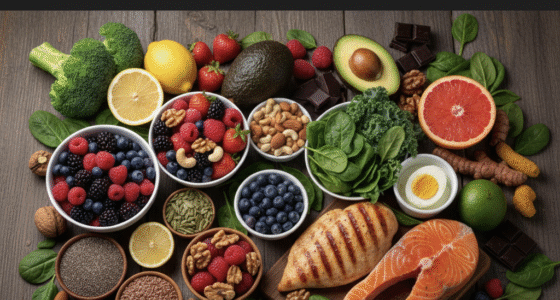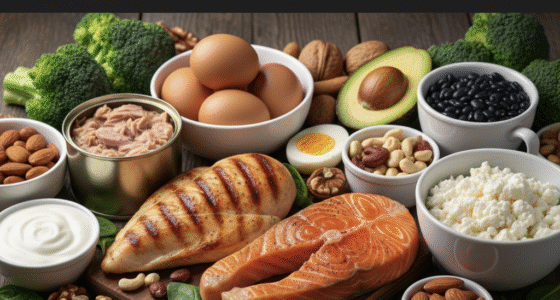Nutrition Tips for Glowing Skin
Everyone wants glowing, radiant skin. While skincare products and treatments can help, true skin health starts from within. What you eat plays a significant role in how your skin looks and feels. A diet rich in essential vitamins, minerals, antioxidants, and healthy fats can improve your complexion, slow down aging, and prevent common skin issues like acne, dryness, or dullness. In this article, we’ll explore powerful nutrition tips for glowing skin that you can easily include in your daily routine.
Essential Nutrients for Healthy, Glowing Skin
1. Vitamin C
Vitamin C is a powerful antioxidant that helps the skin fight oxidative stress caused by pollution, sun exposure, and aging. It also stimulates collagen production, which keeps the skin firm and reduces wrinkles. Citrus fruits, bell peppers, strawberries, and kiwi are excellent sources of vitamin C.
2. Vitamin E
Vitamin E protects skin cells from damage and supports moisture retention. It works hand-in-hand with vitamin C to prevent premature aging. Nuts, seeds, spinach, and avocados are rich in vitamin E.
3. Omega-3 Fatty Acids
Omega-3s help reduce inflammation and keep skin hydrated. They also support the skin’s lipid barrier, which prevents moisture loss. Fatty fish like salmon, flaxseeds, and walnuts are great options.
4. Zinc
Zinc plays a role in healing wounds, reducing acne, and protecting the skin against infections. Pumpkin seeds, legumes, and shellfish are excellent zinc sources.
5. Collagen-Boosting Foods
Collagen keeps the skin plump and youthful. Bone broth, eggs, and foods rich in vitamin C support collagen synthesis naturally.
Nutrition Tips for Glowing Skin
1. Stay Hydrated
Water is essential for skin hydration and elasticity. Dehydration can make your skin appear dull, dry, and flaky. Aim to drink at least 8 glasses of water daily and include hydrating foods like cucumber and watermelon.
2. Eat a Rainbow of Fruits and Vegetables
Colorful produce provides a wide range of antioxidants that protect the skin. Carrots and sweet potatoes, rich in beta-carotene, support skin repair and give a natural glow.
3. Avoid Excess Sugar and Processed Foods
Sugary and processed foods can cause inflammation and lead to skin problems like acne and premature aging. Focus on whole, unprocessed foods instead.
4. Include Healthy Fats
Healthy fats keep skin moisturized and flexible. Avocados, olive oil, and nuts supply essential fatty acids that nourish skin from the inside out.
5. Limit Alcohol and Caffeine
Excessive alcohol and caffeine can dehydrate the skin and accelerate aging. If consumed, balance them with plenty of water and nutrient-dense foods.
6. Don’t Skip Protein
Protein provides the building blocks for collagen and elastin, which maintain skin firmness. Include lean meats, legumes, and tofu in your meals.
7. Green Tea for Skin Health
Green tea is packed with antioxidants called catechins that reduce inflammation, protect against sun damage, and improve skin texture.
Sample Meal Plan for Glowing Skin
- Breakfast: Smoothie with spinach, banana, berries, and chia seeds
- Snack: Almonds and green tea
- Lunch: Grilled salmon with quinoa and steamed broccoli
- Snack: Carrot sticks with hummus
- Dinner: Brown rice, stir-fried vegetables, and avocado salad
Lifestyle Tips to Support Skin Nutrition
Nutrition alone isn’t enough. Combine a healthy diet with good lifestyle habits for maximum benefits:
- Get 7–8 hours of quality sleep daily.
- Protect your skin with sunscreen when outdoors.
- Manage stress through yoga, meditation, or breathing exercises.
- Avoid smoking, as it accelerates skin aging.
Final Thoughts
Your diet has a direct impact on your skin’s health and appearance. Remember, glowing skin isn’t about quick fixes but long-term healthy habits. With these nutrition tips for glowing skin, you’ll not only improve your complexion but also support your overall health and wellness.









